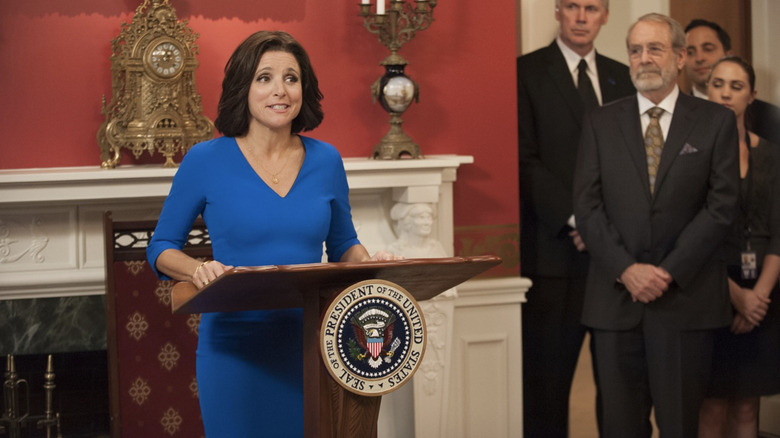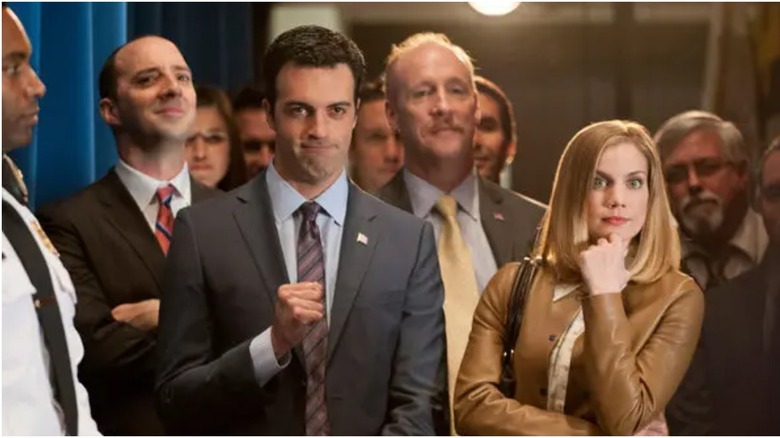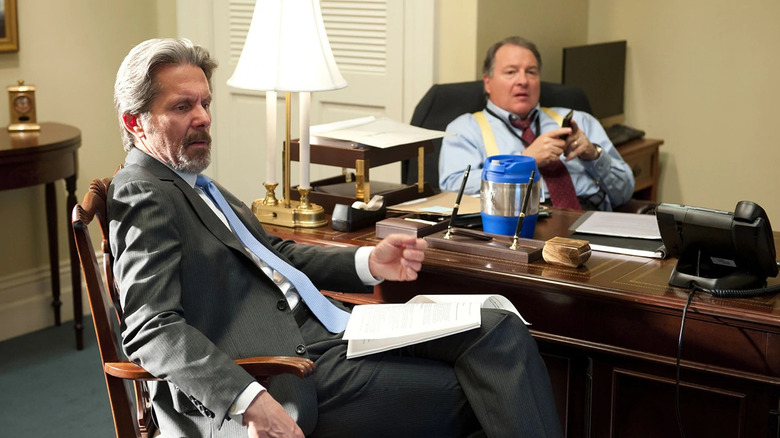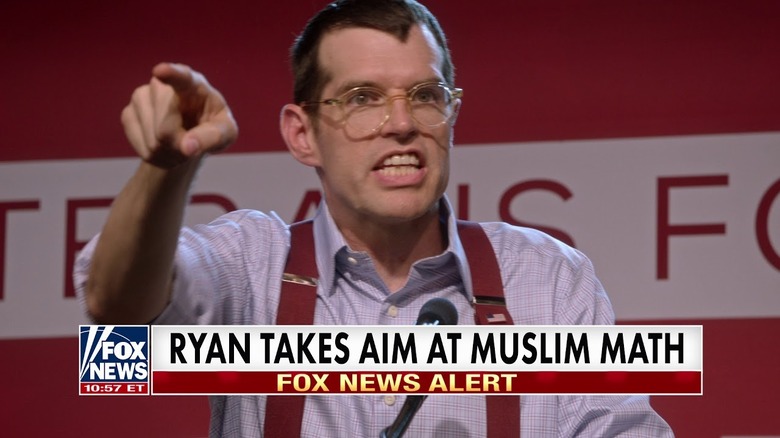The Daily Stream: Veep Is A Brutally Cynical And Hilarious Political Satire
(Welcome to The Daily Stream, an ongoing series in which the /Film team shares what they've been watching, why it's worth checking out, and where you can stream it.)
The Show: "Veep"
Where You Can Stream It: HBO Max
The Pitch: In most American television, politicians are either valorized or demonized — but not in "Veep." As far removed from the "End of History"-flavored liberalism of "The West Wing" as can be, the characters have no respect for the institutional process and no need for principle. The politicians and staffers in "Veep" are ambitious, cynical, and indifferent if not disdainful of the people they're supposed to govern. At the same time, though, there are no diabolical chess masters like in "House of Cards." The office of Vice President Selina Meyer (Julia Louis-Dreyfus) is filled with bumblers whose few victories are the result of luck.
The HBO series was created by Armando Iannucci, who had previously satirized the U.K.'s politics in "The Thick of It." By portraying Washington, D.C. as a land of moral bankruptcy and abject incompetence, "Veep" is the most lifelike depiction of American politics. It'd be sobering if it weren't so hilarious.
Why It's Essential Viewing
The last half-decade has made three things undeniable: American politics are dire, ego-driven, and very, very stupid. "Veep," which debuted in early 2012, before President Obama's re-election, was ahead of the curve. Part of its lampooning is how the series explores a part of the American executive branch under-scrutinized by the media and public.
Most movies or TV shows about American politics focus on the president over the VP. John Adams, America's first vice president, called the job "the most insignificant office that ever the Invention of man contrived or his imagination conceived." However, this insignificance means a VP's office is perfect for a satirical comedy like "Veep." It underscores the fundamental pettiness of the characters and adds to the Sisyphean humor of them constantly being just out of reach of true power.
Julia Louis-Dreyfus is revelatory as Selina. She uses the same quick wit and vindictiveness that made Elaine Banes so funny, mixed with the ambition you need to be a politician. Selina is never a good person, but after constantly grasping defeat while in the jaws of victory, she grows more bitter and insatiable. Still, in an ensemble comedy, a lead is only as good as the supporting players they have. "Veep" has some great ones.
Selina's main support staff initially numbers four: the workaholic chief-of-staff Amy Brookheimer (Anna Chlumsky), the closest thing to competent among the chief staff; the scumbag with a smile advisor Dan Egan (Reid Scott); the lazy, barely functional communications director Mike McClintock (Matt Walsh); and sycophantic personal assistant Gary Walsh (Tony Hale). Working across the street is breakout character Jonah Ryan (Timothy Simons), liaison from the White House to the VP's office, and the most loathsome and hilarious of them all.
The cast goes from strength to strength
This cast grows as the show continues. "Veep" season 2's introductions of burnt-out advisor Ben Cafferty (Kevin Dunn) and numbers-obsessed polling strategist Kent Davison (Gary Cole) instantly take the show up a notch. The two are often written as a pair, with Ben's apathy and Kent's precision making them perfect comic foils. The following season gives us Richard Splett (Sam Richardson), an aide for Selina and then Jonah, who'd be too pure-hearted for DC politics if he weren't also surprisingly competent.
Despite such a fabulous ensemble, the series is willing to bubble off its characters into different enclaves. It even weaves this into its satire. Across all seven seasons, characters drift from jobs, working as political staffers, lobbyists, and television personalities, fumbling through each one and only advancing thanks to privilege and connection. "Veep" shows you the revolving door of D.C. in action.
"Veep" is just as good at devising comic situations for its characters on a micro-level. Season 4's "Deposition," where each of the main cast is grilled before a congressional sub-committee, is a series highlight. So is "Kissing Your Sister," the Season 5 episode depicting the final outcome of the 2016 election, framed as an in-universe documentary by Selina's daughter, Catherine (Sarah Sutherland).
When reality got more absurd than satire
Speaking of, we need to talk about "Veep" season 5. Aired in 2016, this season marked a showrunner turnover from Iannucci to David Mandel. This change is when "Veep" became a broader and meaner show. It wasn't always a success; the aimless season 6 is the most forgettable since the first, and it's when Selina goes from merely unsympathetic to downright sociopathic. However, the reality of politics was eclipsing satire; the series had to get with the times and it did result in some good storylines. The best was Jonah's run for a New Hampshire congressional seat. Overseen by his foul-mouthed, hyena-laughing uncle Jeff Kane (Peter MacNicol, unfortunately never added to the main cast), Jonah stumbles into victory. This turns out to be a prelude to his presidential campaign in the seventh and final season.
"Veep" season 7 is a better satire of the 2016 election than any recreation of those events could be. On one hand, there's a career politician gradually shedding her veneer of liberalism to grab her last chance at the White House. On the other, an idiot man-child carried along by a wave of reaction. Jonah runs on anti-vaccine hysteria and a promise to ban Algebra from public schools because a. he flunked it in high school and b. it was invented by Muslim scholar Muhammad ibn Musa al-Khwarizmi. Like in real life, he makes it to the White House — but not the Oval Office.
To secure the party nomination, Selina offers Jonah the Vice Presidency, cursing him into the same limbo she was in at the series' beginning:
"Being vice president is like being declawed, defanged, neutered, ball-gagged, and sealed in an abandoned coal mine under two miles of human s***! It is a fate worse than death."
In the eponymous finale of "Veep," pieces fall into place similar to how they did in the greatest TV finale ever: "Family Meeting" of "The Shield." Selina loses even as she wins, achieving her goal but sacrificing everything else to get there. Recent history has taught us the only justice we can expect for destructive politicians is that long after they're gone, they'll be remembered on the wrong side of history. Just this once, that much is enough.



